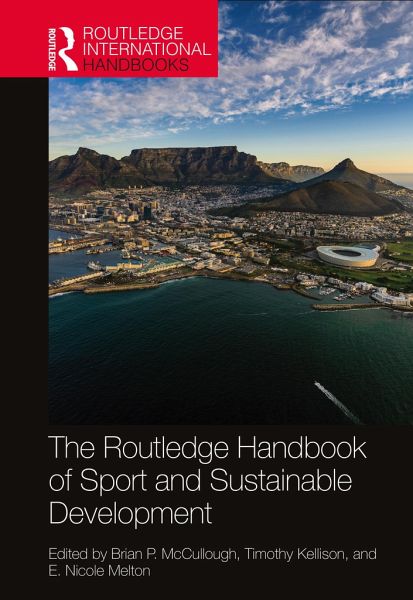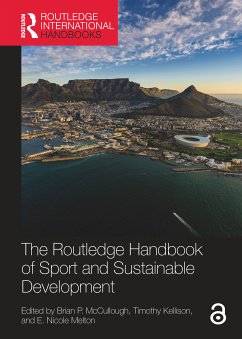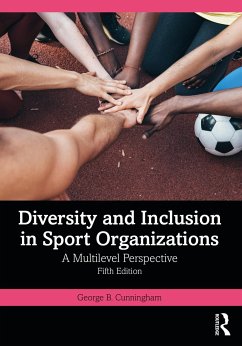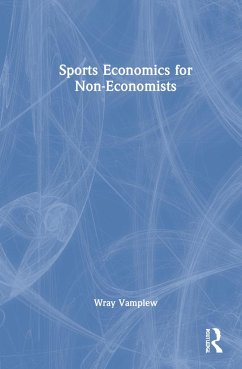
The Routledge Handbook of Sport and Sustainable Development
Versandkostenfrei!
Versandfertig in 6-10 Tagen
230,99 €
inkl. MwSt.

PAYBACK Punkte
115 °P sammeln!
The Routledge Handbook of Sport and Sustainable Development is a comprehensive and powerful survey of the ways in which sport engages with its social, environmental, and ethical responsibilities.It considers how sport can use its unique profile and platform to influence the attitudes of sport fans and consumers to promote positive social and environmental action around the world and to contribute to sustainable development, perhaps the most important issue of our time. The book is structured around the 17 UN Sustainable Development Goals, with a section devoted to each goal that contains chapt...
The Routledge Handbook of Sport and Sustainable Development is a comprehensive and powerful survey of the ways in which sport engages with its social, environmental, and ethical responsibilities.
It considers how sport can use its unique profile and platform to influence the attitudes of sport fans and consumers to promote positive social and environmental action around the world and to contribute to sustainable development, perhaps the most important issue of our time. The book is structured around the 17 UN Sustainable Development Goals, with a section devoted to each goal that contains chapters reviewing key theory and current research, measurement and evaluation issues, and the application of current knowledge in real-world development situations. Drawing on research and expertise from management, sociology, development studies, psychology, and other disciplines, the book examines the role that sport must play in areas such as health and well-being, poverty, education, gender equality, decent work, responsible consumption, and climate action.
Representing a keynote work on the wider social responsibilities of sport as both an industry and sociocultural activity, this is essential reading for any advanced student or researcher working in sport development, sport management, sport sociology, event studies, development studies, or environmental studies, and for any development practitioner or sport management professional looking to understand how to achieve positive social change in and through sport.
The Open Access version of this book, available at http://www.taylorfrancis.com, has been made available under a Creative Commons Attribution-Non Commercial-No Derivatives (CC-BY-NC-ND) 4.0 license.
It considers how sport can use its unique profile and platform to influence the attitudes of sport fans and consumers to promote positive social and environmental action around the world and to contribute to sustainable development, perhaps the most important issue of our time. The book is structured around the 17 UN Sustainable Development Goals, with a section devoted to each goal that contains chapters reviewing key theory and current research, measurement and evaluation issues, and the application of current knowledge in real-world development situations. Drawing on research and expertise from management, sociology, development studies, psychology, and other disciplines, the book examines the role that sport must play in areas such as health and well-being, poverty, education, gender equality, decent work, responsible consumption, and climate action.
Representing a keynote work on the wider social responsibilities of sport as both an industry and sociocultural activity, this is essential reading for any advanced student or researcher working in sport development, sport management, sport sociology, event studies, development studies, or environmental studies, and for any development practitioner or sport management professional looking to understand how to achieve positive social change in and through sport.
The Open Access version of this book, available at http://www.taylorfrancis.com, has been made available under a Creative Commons Attribution-Non Commercial-No Derivatives (CC-BY-NC-ND) 4.0 license.












